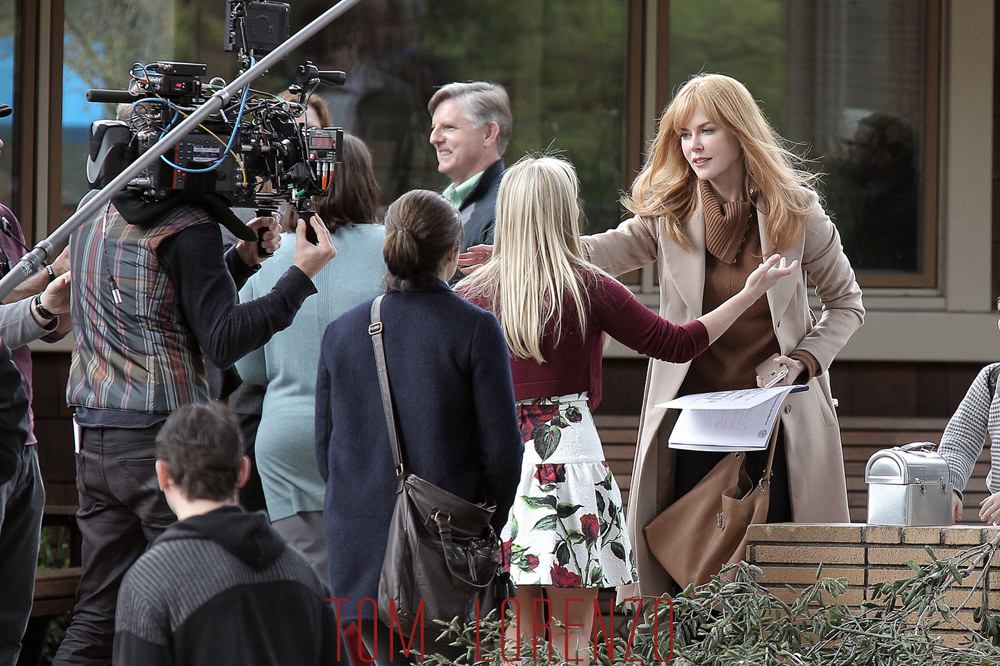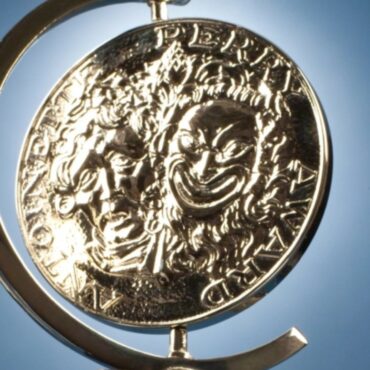chevron_left
-
play_arrow
NGradio So good... like you
Nicole Kidman on Big Little Lies: ‘It penetrated my psyche in a way a film never had’

share
close
WARNING: This post contains spoilers from the Big Little Lies season finale. Read at your own risk!
Nicole Kidman agreed to play Celeste Wright in Big Little Lies when she first met the novel’s author, Liane Moriarty, and they struck a deal: If the Academy Award-winning actress would play the lawyer-turned-abused-housewife, Moriarty would grant her and Reese Witherspoon the rights to the project.
That agreement led Kidman down a rabbit hole of despair, where she endured long days of playing physically and emotionally draining scenes opposite Alexander Skarsgård, who portrayed Perry Wright, her handsome, charming, and abusive husband. The result is some of Kidman’s finest work of her career, but getting there was no cake walk. Here, we talk to Kidman about the challenges of embracing Celeste.
And for more on the finale of HBO’s Big Little Lies finale, check out our interview with Skarsgård here and our chat with director Jean-Marc Vallée here.
ENTERTAINMENT WEEKLY: In the finale, when you discover that it’s your son who’s been bullying little Amabella, it’s heartbreaking, as is the following scene when she confronts the 6-year old. Tell us a bit about filming that.
NICOLE KIDMAN: One of the most important scenes in the series is when I go and find Max and hold him and whisper to him, and say, “People do bad things but that doesn’t mean that’s you. We can change this. I’m here.” She deals with her child with love instead of punishment. That to me is Celeste’s shining moment. That’s her heart and I love that’s the choice there. She knows she’s responsible. Though they weren’t seeing [the abuse], they were absorbing it. She feels that and she knows that’s the parenting that’s been going on and it’s affected one of their children. And that’s devastating to her.
It’s also why she can finally leave. This is what I find deeply sad, I’ll put up with things, I’ll absorb thing, as long as my children are protected. As soon as my children are exposed, and she sees it, then she can act, then she can move, then she’s propelled. And that just cuts me to my core.
What do you think about the fact that it’s Bonnie that actually pushes him down the stairs?
The backstory of Bonnie is complicated, and not fully explored, which is probably why we need to do a season 2. It indicates that every woman is holding some sort of secret or damage or something and that’s not fully explored. We don’t have any plans for a season 2 but the beauty of this is there are so many deep stories here that are ripe for mining. There are so many different ways to go with all of these women. This is such a small portion of their lives but I love that people have connected to them in such a deep way. And everyone in different ways to different women.
Were you at all fearful to play Celeste?
I wasn’t fearful but when I started doing it, it penetrated me in ways I didn’t quite realize. There were days and days of doing a lot of aggressive, really violent scenes. And I would go home and have a shower or have a bath and I would weep at home. And it would be like, “Oh my gosh, what is happening to me?” And then one day, I just got a rock and threw it through a glass door! Yes. Where I was staying. And I threw a rock. I must have had a lot of pent-up [stress], because I was trying to hold it all in. I’ve never done that in my life. And then I just started crying and crying and crying. It just penetrated my psyche in a way a film never had.
When Jean-Marc Vallée shot those scenes with the two of you, he gave you a lot of freedom with the natural light and handheld cameras but that also meant you were doing each scene over and over from start to finish, correct?
Over and over again. That’s probably why I built up this pent-up… It was very confronting and I felt very exposed and embarrassed at times. My emotions were so blurred with hers. All of it, the humiliation, the embarrassment, the fighting back, the rage, the shame, the stoicism. I think all of it became just blurred. Alex was amazing. A lot of the things that we did, we were just very open with each other. We were very safe. We created a bubble that we existed in and then we’d walk away from it. And we wouldn’t ever talk about it.
But you went home with bruises, right? This wasn’t all done with a stunt woman.
Yeah. I don’t know if he had any bruises. He probably did. (Laughs) But I did; I was covered in them. My body was in pain. That’s how I describe it. I don’t usually take Advil and I would take Advil. I was living through it. I felt the necessity to do that for the truth of this story, which I feel is a very important story to tell. It’s insidious how these things happen. The things that start to become normal when they aren’t normal and the things we allow. And how a relationship can morph into where both people in it are not bad people. And he is very sick. He’s not well.
What kind of surprising reactions to the show have you received?
There are many different reactions (laughs) but they are connected to it. The biggest word I hear is “obsessed.”
What’s next for you?
I have a film, The Killing of a Sacred Deer. I’m very idiosyncratic in my tastes. I did Lion and I did Big Little Lies so now I’ve gone back to a very subversive film, Yergos Lanthimos, the director of The Lobster. It’s very out there. It’s avante garde art. I’m so schizophrenic in my tastes. People are like, “Oh my god, who are you?” The truth of it is I love auteurs and I love philosophical filmmakers and that’s why I love that Big Little Lies got made, because as much as it seems like a sure thing now, it wasn’t. I like the high-wire act of it. I believe in not towing the line. Conformity is what I run from.
Source: ew.com
Written by: New Generation Radio
Rate it
Similar posts
ΔΗΜΟΦΙΛΗ ΑΡΘΡΑ
COPYRIGHT 2020. NGRADIO




















Post comments (0)